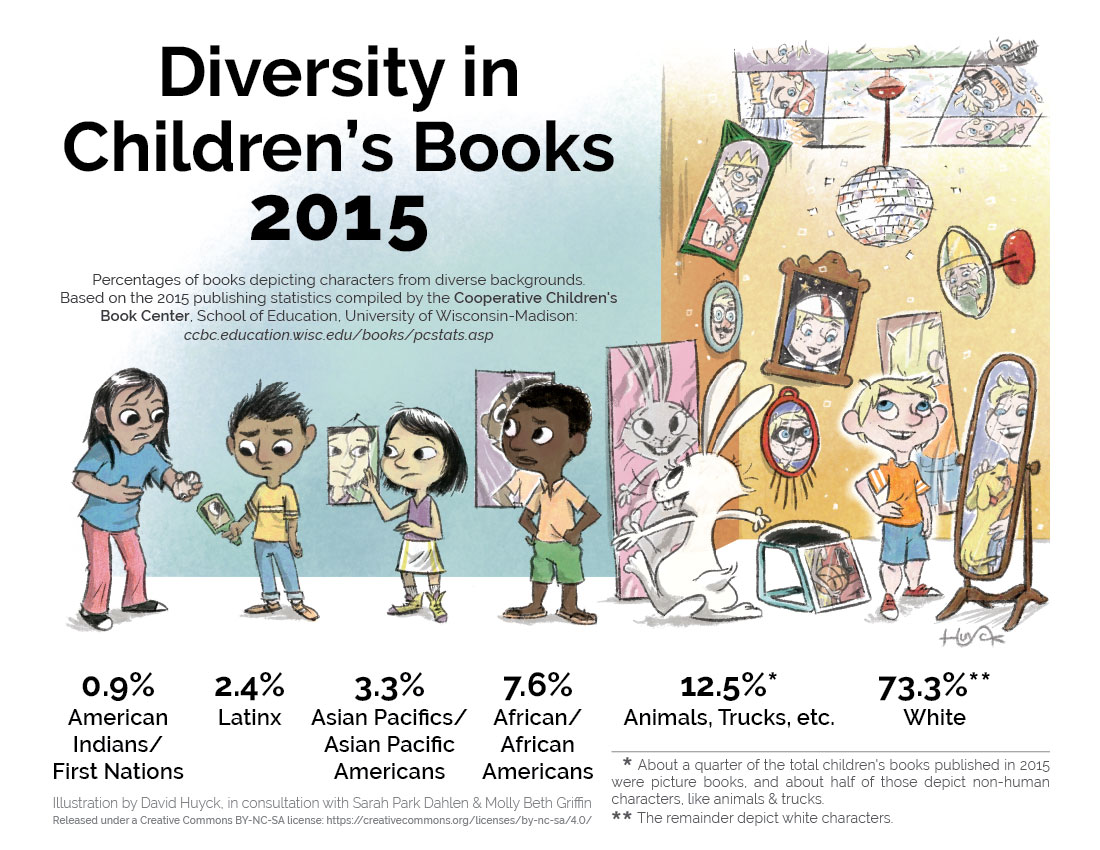At the January Confab hosted by the Chicago Literacy Alliance, the topic was access to books. We specifically discussed two main topics: building home libraries and diversity of characters in the books in those libraries. These are two ideas that Turning the Page believe are critical for student success. Every participant in a Turning the Page event goes home with a free, high-quality new book. We do our best to make sure parents and students receive books that reflect their own lives and communities.
Building Home Libraries
Numerous studies show the positive effects of home libraries. Children raised in homes with more than 500 books spent three years longer in school than children whose parents had only a few books. A 2010 study published in Research in Social Stratification and Mobility found that growing up in a household with 500 or more books is “as great an advantage as having university-educated rather than unschooled parents, and twice the advantage of having a professional rather than an unskilled father.” Another troubling statistic from 2001: “Children in middle-income neighborhoods had multiple opportunities to observe, use, and purchase books (approximately 13 titles per child); few opportunities were available for low-income children who, in contrast, had approximately one title per 300 children.”
A family of four gains as many as 40 books by attending TTP programs during the course of the school year. In addition to building home libraries, parents learn strategies for supporting their child’s literacy development. For example, a Garfield Elementary School parent stated that due to her participation at Community Nights, her child’s reading has improved a grade level. “It’s from the way we read books, like reading with emphasis and these other nice things that we do now that we didn’t do at home before. It’s more engaging for all of us,” she said.
Diverse Books

Illustration ©2016 David Huyck, in consultation with Sarah Park Dahlen and Molly Beth Griffin (for more information, click here)
But what good is a home library if it doesn’t have representation? As the graphic above shows, representation in books is nowhere near where it could be.
Jane Fleming spoke at that CLA confab. Ms. Fleming is the Director of Literacy for Chicago Public Schools. She previously worked at the Erikson Institute and is the co-founder of Kids Like Us. In one previous presentation Ms. Fleming gave, she breaks down why representation is important. Representation in books has many positive characteristics beyond filling a quota. Familiar schema attributes to reading comprehension, as well as emphasizing linguistic awareness and relating speech to print. It can also maintain general interest and motivation in reading. And having authors and illustrators that look like the reader can increase perceived value in their own life and community.
This sentiment is echoed in the same study from 2010. “In general, the books help establish a reading or “scholarly culture” in the home that persists from generation to generation within families, largely independent of education and class. This creates a “taste for books” and promotes the skills and knowledge that fosters both literacy and numeracy and, thus, leads to lifelong academic advantages.”
At Turning the Page, we aim to not only build home libraries but to make sure that kids see themselves and their communities represented in books.
To help further our mission of building family home libraries, consider making a donation to Turning the Page today.
